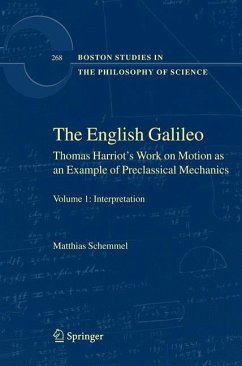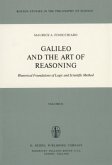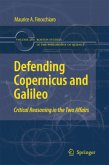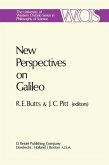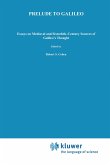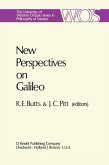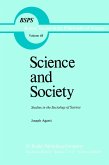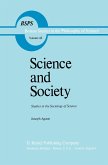The English Galileo-the title of this book draws on the extraordinary prominence of Galileo Galilei in the historiography of the early modern Scienti?c Revolution. At the same time it questions the uniqueness of Galileo (not as a person, of course, but as an early modern phenomenon) by proclaiming another ?gure of his kind: Thomas H- riot. But putting Harriot on a pedestal next to Galileo is not a concern of this book, which is rather motivated by questions of the following kind: How did modern s- ence come about? What were the processes of knowledge and concept transformation that led from premodern to modern science, and, more speci?cally, from preclassical to classical mechanics? Which aspects of these developments rely on the peculiarities of particular historical actors and what aspects re?ect more general characteristics of the knowledge system at the time and its potentials for development? To answer such questions it is obviously necessary to complement the existing studies on Galileo's science with studies on the work of his lesser-known contemporaries; and it is imp- tant that these studies are carried out in similar detail to make the different prota- nists' work comparable. Without such comparison-this is the basic assumption of this book-our understanding of the shared knowledge of early modern thinking and the processes of knowledge transformation from which modern science emerged will remain incomplete and biased.
From the reviews:
"Schemmel's expositions are extremely clear, and he takes pains to provide careful explanations of Harriot's more complex constructions ... . Historians of early modern natural philosophy or mechanics will find much to reward their efforts in The English Galileo. Schemmel's study should also be applauded for shedding valuable light on an unjustly marginalized figure." (Stephen Clucas, ISIS, Vol. 104 (3), September, 2013)
"This book is an ambitious attempt to catalogue and interpret the unpublished manuscripts on mechanics by English mathematician and philosopher, Thomas Harriot ... . Schemmel's contribution to this project focuses on Harriot's attempts to describe bodies in motion, particularly projectiles. ... Readers specialising in the history of mechanics and motion would undoubtedly learn a great deal about Harriot ... ." (Luciano Boschiero, Metascience, Vol. 21, 2012)
"The English Galileo offers the first comprehensive study of Harriot's work on motion. More specifically, the book is devoted to the reconstruction, detailed analysis, and interpretation of Harriot's work on projectile motion and the free fall of bodies. ... Matthias Schemmel has considerably enhanced our knowledge not only of Harriot but also of the development of mechanical knowledge. ... Schemmel's work is an outstanding contribution to a better understanding of the rise of a mechanical worldwide. Admirers of Galileo will also become admirers of Harriot." (William R. Shea, Mathematical Reviews, Issue 2012 g)
"The title of the book is absolutely justified. The author argues that both Galilei and Harriot worked within a framework that he calls preclassical mechanics. It is a mix of several elements. It consists of parts of old traditions like Aristotelian physics combined with the knowledge of practitioners like gunners. ... Schemmel did a wonderful job and ... this book about the crucial transitionfrom preclassical mechanics to classical mechanics represents the beginning of more work on Harriot." (Teun Koetsier, Zentralblatt MATH, Vol. 1244, 2012)
"Matthias Schemmel in his superb edition of Harriot's work on free fall and projectile motion has independently used the same technique of facsimile and commentary. ... The second of his two volumes consists entirely of reproductions of the 180 folios he has selected from Harriot's work on motion under gravity, together with schematic analyses of their contents. ... a fine contribution not only to Harriot scholarship but to a deeper understanding of the development of early modern science and mathematics." (Jackie Stedall, BSHM Bulletin, Vol. 24, 2009)
"Schemmel's expositions are extremely clear, and he takes pains to provide careful explanations of Harriot's more complex constructions ... . Historians of early modern natural philosophy or mechanics will find much to reward their efforts in The English Galileo. Schemmel's study should also be applauded for shedding valuable light on an unjustly marginalized figure." (Stephen Clucas, ISIS, Vol. 104 (3), September, 2013)
"This book is an ambitious attempt to catalogue and interpret the unpublished manuscripts on mechanics by English mathematician and philosopher, Thomas Harriot ... . Schemmel's contribution to this project focuses on Harriot's attempts to describe bodies in motion, particularly projectiles. ... Readers specialising in the history of mechanics and motion would undoubtedly learn a great deal about Harriot ... ." (Luciano Boschiero, Metascience, Vol. 21, 2012)
"The English Galileo offers the first comprehensive study of Harriot's work on motion. More specifically, the book is devoted to the reconstruction, detailed analysis, and interpretation of Harriot's work on projectile motion and the free fall of bodies. ... Matthias Schemmel has considerably enhanced our knowledge not only of Harriot but also of the development of mechanical knowledge. ... Schemmel's work is an outstanding contribution to a better understanding of the rise of a mechanical worldwide. Admirers of Galileo will also become admirers of Harriot." (William R. Shea, Mathematical Reviews, Issue 2012 g)
"The title of the book is absolutely justified. The author argues that both Galilei and Harriot worked within a framework that he calls preclassical mechanics. It is a mix of several elements. It consists of parts of old traditions like Aristotelian physics combined with the knowledge of practitioners like gunners. ... Schemmel did a wonderful job and ... this book about the crucial transitionfrom preclassical mechanics to classical mechanics represents the beginning of more work on Harriot." (Teun Koetsier, Zentralblatt MATH, Vol. 1244, 2012)
"Matthias Schemmel in his superb edition of Harriot's work on free fall and projectile motion has independently used the same technique of facsimile and commentary. ... The second of his two volumes consists entirely of reproductions of the 180 folios he has selected from Harriot's work on motion under gravity, together with schematic analyses of their contents. ... a fine contribution not only to Harriot scholarship but to a deeper understanding of the development of early modern science and mathematics." (Jackie Stedall, BSHM Bulletin, Vol. 24, 2009)

